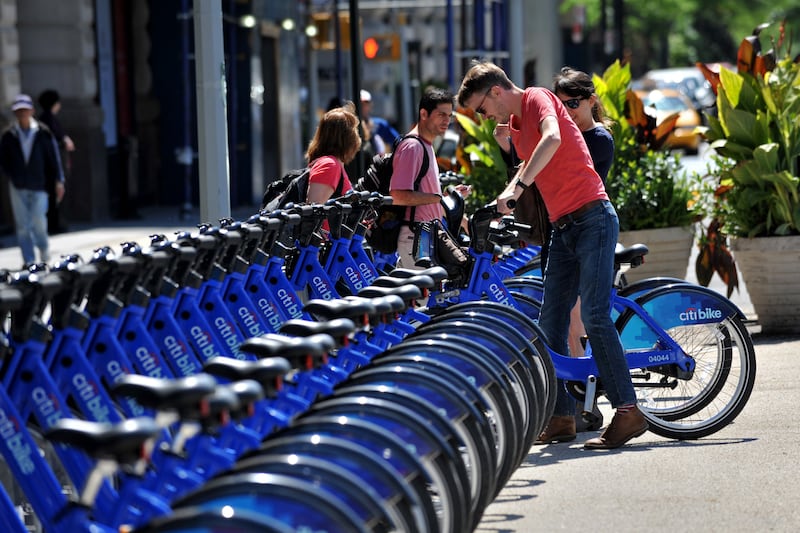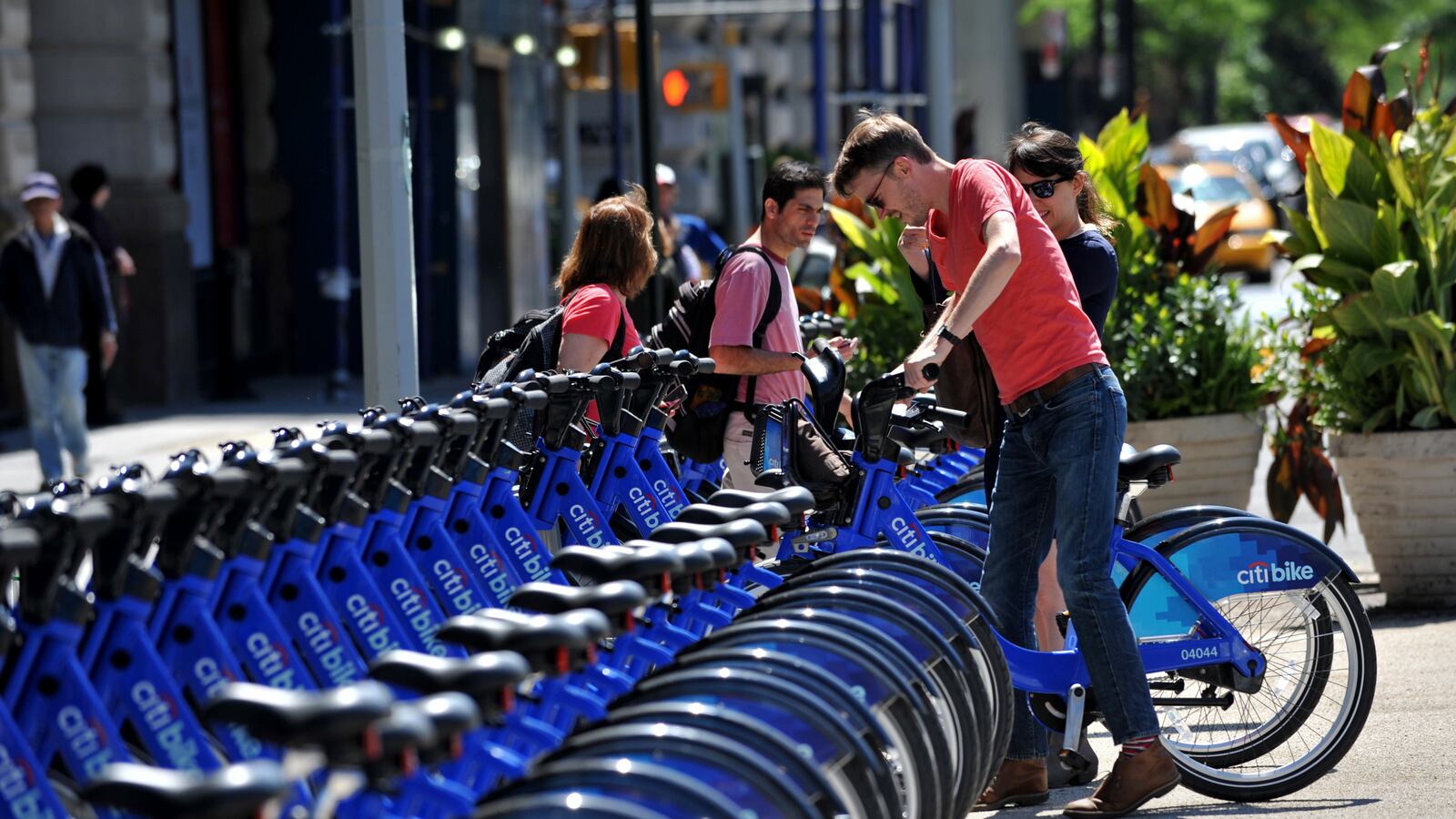New York City’s bike-sharing system, Citi Bike, is only two weeks old. In the media, it has many champions, including your humble author, who has ridden it to the office, to a board meeting, to television appearances, and elsewhere. It saves money, it’s convenient, it’s the biggest new piece of transportation infrastructure in New York in years, and it offers hundreds of thousands of desk drones the ability to integrate exercise into their daily commuting routines. It’s nowhere near perfect (I was unable to liberate a bike Thursday afternoon, because the system thought I had failed to close out a ride from that morning), but it’s not bad. And New Yorkers seem to like it. As of Friday, 34,305 people had purchased annual memberships, and users had completed 128,417 rides, an overwhelming amount of them without incident.

Of course, for some reason, people on the right seem to loathe the whole of idea of a bike-sharing system and of two-wheeled transport in general. Rupert Murdoch’s empire has been a particular hotbed of Citi Bike hatred. The New York Post has gleefully documented every hiccup in the new program. Wall Street Journal editorial-page writer Dorothy Rabinowitz recorded a histrionic anti-bike video that went viral. And in the first evidence to be found in ages of the Journal expressing concern over the poor, Saturday’s edition had an article complaining that the bikes aren’t available in low-income neighborhoods. Daniel Greenfield, a writer for FrontPage (the creation of David Horowitz, the left-wing nut job turned right-wing nut job), noted that the system has totalitarian origins. (N.Y.C. Transportation Commissar Jannette Sadik-Khan “is the granddaughter of Imam Alimjan Idris, a Nazi collaborator and principle [sic] teacher at an SS school for Imams under Hitler’s Mufti, Haj Amin al-Hussein.”)
There’s a rich and growing literature as to why conservatives seem to hate bikes and bike-sharing systems. Paul Krugman has argued that privileged types accustomed to being driven around town by others don’t like the fact that some curbside parking spots have been displaced by bike racks. And Dan Amira at New York constructed a helpful graphical explanation: right-wingers don’t like things that are healthy, seem vaguely French, or involve sharing, Mayor Bloomberg, or environmentalism. The Citi Bike system is thus a summa of all conservative fears.
I’d add a couple more reasons. The political figure most associated with two-wheeled transport is former president George W. Bush, who loves to careen around his ranch on a mountain bike. And although they celebrated his every move for eight years, the right wing is now quite embarrassed by the multiple failures that occurred on his watch. The Bush legacy is so toxic for Republicans that it has turned a benign form of personal transport and exercise into a taboo. (Former Treasury secretary Henry Paulson, the architect of the hated bailouts, was also known to ride his bike to work regularly.)
Not to mention that bikes are generally associated with both young people and foreigners, two large groups of people that today’s ancient white GOP just can’t get down with. Bicycling is also a mode of transport primarily identified with the poor, and we all know how modern Republicans feel about the less fortunate.
Finally, bicycles require physical effort. They are not for the physically lazy or the chronically, unabashedly out-of-shape. If you’re the sort of person for whom driving around a golf cart comprises exercise, then riding a bicycle is out of the question. Could you imagine Rush Limbaugh, or Haley Barbour, or New Jersey Gov. Chris Christie, or Georgia Sen. Saxby Chambliss, or House Speaker John Boehner on a bicycle? (Of course, not all right-wingers hate the bike. Here’s Young Gun House Majority Leader Eric Cantor riding.)
But conservatives shouldn’t hate bikes, or bike-sharing systems, or even Citi Bike in particular. First, they're forever arguing about the need to privatize core government functions and deliver services without relying much on public resources. New York’s bike-share system was built almost entirely with private funds. It’s called Citi Bike because Citi, the huge financial institution, is its main backer.
Second, bikes are spurs to entrepreneurship. They give people who lack the resources (or the age) to drive a car the ability to move around quickly, and hence to work. I did my first job, as a delivery boy for the Lansing State Journal, in the late 1970s with the help of my 10-speed. In fact, it taught me an important lesson about the relationship between capital investment and productivity—buying a new bike enabled me to complete my route in a shorter period of time. I then used the same bike to pull my lawn mower (which I had also purchased) around the neighborhood to jobs.
Third, bicycling is all about self-reliance and the prospect of mobility, two bedrock principles of modern conservativism. It’s really one of the only forms of transportation, aside from walking, that depends entirely on human agency and effort, each man or woman for himself. You get out of it almost exactly what you put in (minus a little energy wasted in friction). Bikers may be able to draft off one another, but there’s almost no such thing as a bicyclist being driven around by the labor of someone else.






